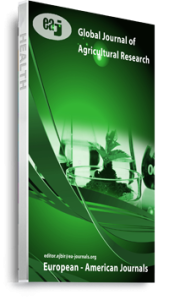Poverty reduction strategy is one of the top priority agenda of developing countries like Ethiopia. Identifying and analyzing factors which are responsible for variation in household poverty status are needed to guide policy decisions, intervention strategy and integrated efforts in order to combat poverty. Thus, this study investigates the determinants of agro-pastoral household poverty in Denbel district of Shinille zone in Somali regional state. It is based on information gathered from 240 randomly selected households in the district. The Foster, Greer and Thorbecke (FGT) poverty index is employed to examine the extent and severity of the agro-pastoralists’ poverty in the study area. The survey outcome revealed that 67% of the sample households live below the poverty line of the district. The head count of poverty indicated that the proportion of the household falling into poverty is far higher than those escaping poverty. A binary logistic regression model was used to identify the determinants of poverty. Results show that out of the 12 variables considered, 8 of them were shown to have a statistically significant effect on the probability of a household to live under poverty line. These are access to irrigation, distance from market center, land size of the household, non-farm income activities, education status of the household head, livestock holding, number of oxen own, diversification of herd was found to have association with poverty status of the HH. Finally, findings from the study suggest that in selecting priority intervention areas, the strategy against poverty should consider the significant variables as the most important instruments.
Keywords: : FGT Poverty Indices, Binary Logistic Regression Model, Somali Regional State, agro-pastoral households’ poverty

